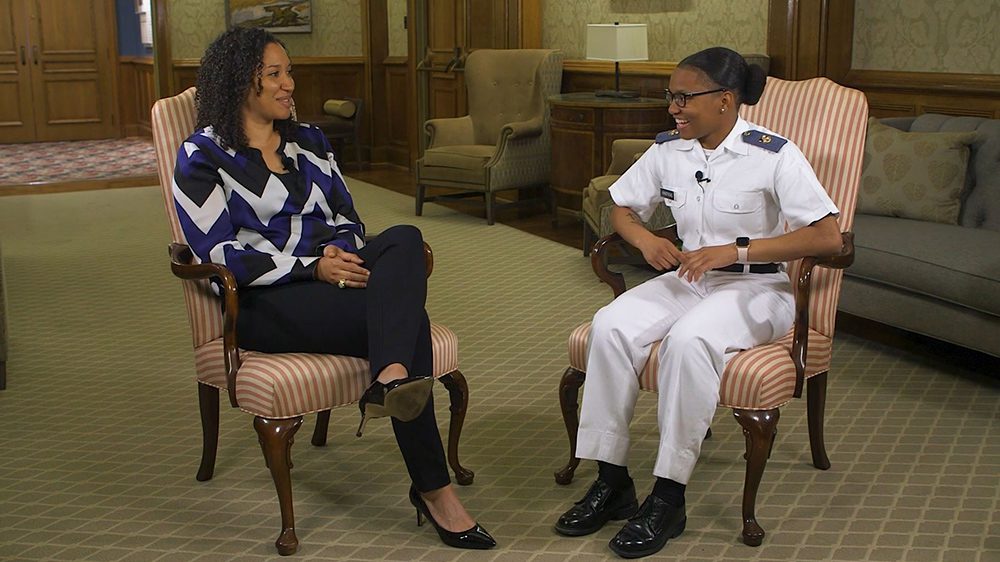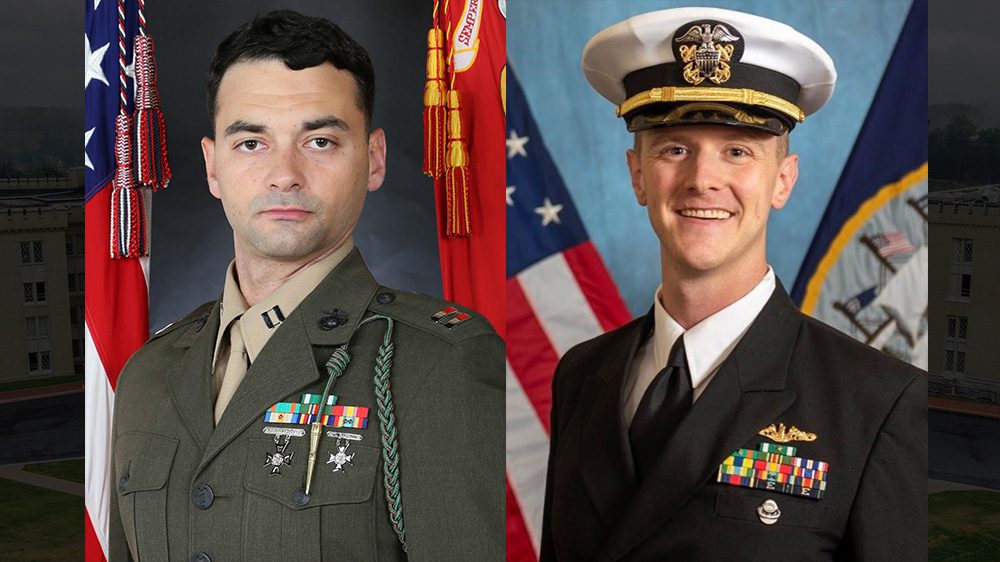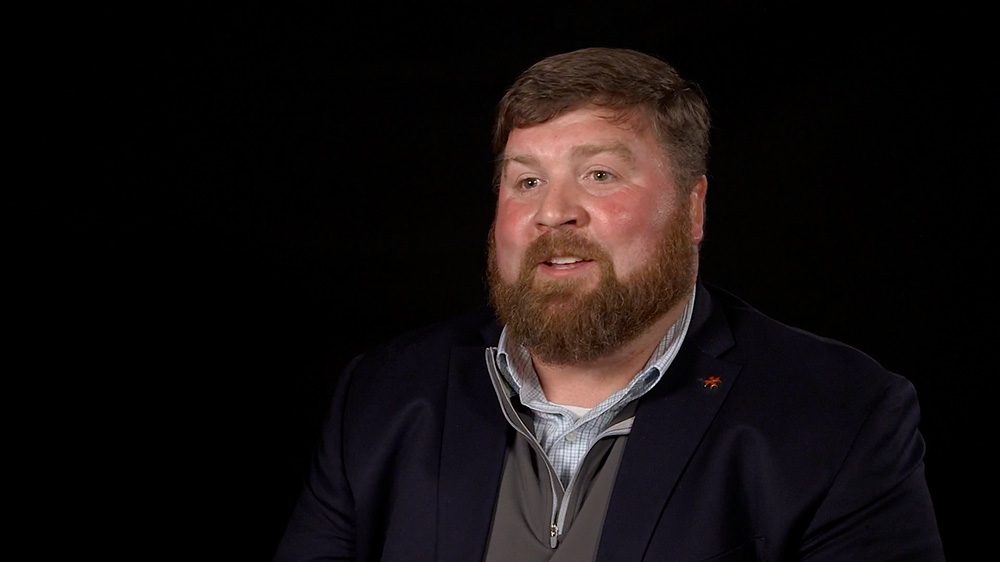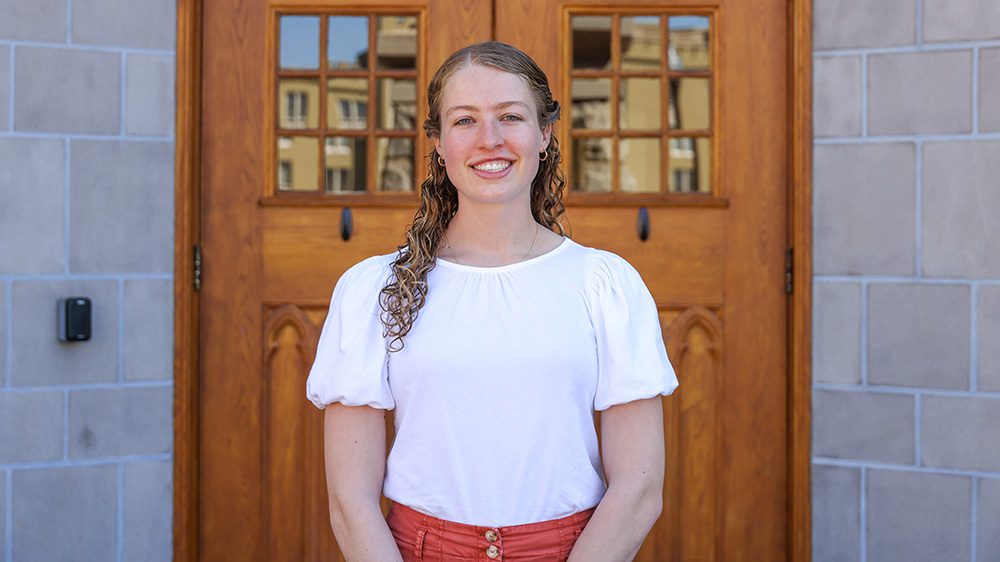In fall 2000, a rat from Canada matriculated, a double minority in what was then only the fourth class to include women at VMI. Tamara Ferguson ’04 was recruited to run track, but she was also encouraged to attend the Institute by her uncle, Neville Anderson ’84, and drawn to the school by the strength of its academic program.
Twenty-one years later, another double minority track athlete, Eleyah Armstrong ’25, matriculated from her home in Hampton, Virginia. Recently, the two women sat down to talk about their experiences of acclimating to VMI, the strength of the VMI community, and how the Institute creates a level of maturity that’s relatively rare.
When she first arrived on post, Ferguson found herself adjusting to a new community and a new culture, one quite different from the urban and urbane environment of Toronto. She found friends and understanding, though, through the Promaji Club, an organization supporting cadets of color and other minorities on post. Anderson had been president of the club when he was a cadet, and Ferguson likewise served a term as president.
“It’s not like there’s a singular female experience at VMI or a singular Black cadet experience at VMI,” she noted. “But I think having people to talk to makes it make a big difference. … Just not feeling alone sometimes can feel like a burden lifted a little bit.”
That shared and lifted burden creates the intense community that VMI is so well known for.
“Still such a dramatic part of the VMI community is that fellowship, whether it’s in barracks and you’ll find that after you leave, it’s the same,” Ferguson commented. “It’s the same, and in some ways, it’s like time has never passed. When you all get together, it’s the same kind of camaraderie. So that’s kind of cool, that it just never changes.”
Being president of the Promaji Club wasn’t Ferguson’s only leadership role on post. By her 1st Class year, she was also captain of the track team, a member of the NCAA Student-Athlete Advisory Committee, and a dyke to three rats. At VMI, she learned time is at a premium, but wise cadets make room in their schedules for what’s truly important to them.
“You get more practiced at what you have time for, what you don’t have time for,” Ferguson stated. “And again, if it’s aligned to something that’s important to you, you tend to find time.” Nearly two decades later, Armstrong, like Ferguson, had to adapt quickly to a new environment at VMI. “I really stepped out of my comfort zone coming here,” she stated. “The different personalities and different people that I’m around here, it kind of makes me open to other people like other perspectives and things of that nature. … I’ve learned a lot about myself that I probably wouldn’t have learned if I went someplace else.”
"VMI is set up in a way that presents you with so many different challenges that it requires a level of resilience to make it through. And that level of resilience creates a level of self-awareness that is extremely valuable, personally and professionally."
Tamara Ferguson '04
Keeping focused on the “why” of VMI is key to success as a cadet, the younger woman has learned. “I always try to think of the bigger picture and not the now because I’m working toward my future, not the present times,” she said.
For her part, Ferguson tries to come back to post and encourage cadets as much as she can—to keep them focused on the future. She’s especially concerned with being a role model for female cadets, as she had no alumnae of the Institute to look up to during her cadetship.
“I think the camaraderie is a big portion of the [VMI] culture that really resonates with me,” she stated. “There are a lot of very memorable moments for me as a cadet that involved an alumnus coming back and making it very clear that I was now part of the VMI family. … They felt really special to me, and I’m still close to a lot of those folks today. So, I think there’s value in the big picture.”
Now that close to two decades have passed since graduation, Ferguson knows that what she got from VMI is unique.
“I think that VMI is set up in a way that presents you with so many different challenges that it requires a level of resilience to make it through,” she stated. “And that level of resilience creates a level of self-awareness that is extremely valuable, personally and professionally. It’s also relatively rare to have that level of self-awareness.”
Armstrong, it seems, is already on the path to that self-awareness.
“Career-wise, when I graduate from here, I’m going to be 22,” she commented. “And I’m going to be 22 with a great future ahead of me.”
Both women are grateful that their paths led them to VMI. “What I didn’t really understand until I started interviewing was how marketable self-awareness and hard work and resilience was,” said Ferguson. “I don’t think I really clearly understood how rare it was at that age to really see myself pretty honestly and be willing to work on the things that would make me better, but also having a pretty clear grasp of where I could add value. And I think at 22, that’s a lot to bring to the table.”
Like Ferguson, Armstrong noted that having role models is incredibly valuable—and VMI’s class system makes them impossible to miss.
“You look around, and you see some people—they’re better at leadership than you are,” Armstrong stated. “But I don’t look at that as like a bad thing. I kind of look at that as like, OK, how do you get there? Like, how did you get to that point, right? I want to get to where you’re at.”
-

Christian Heilman Director of Digital Content
The director of digital content is responsible for creating original video and multimedia materials, as well as developing and editing web and digital content. The director is responsible for platform coordination and troubleshooting, to include the VMI Alumni Agencies’ primary websites, digital newsletter and other digital platforms.

Mary Price Development Writer/Communications Specialist
The development writer plays a key role in producing advancement communications. This role imagines, creates, and produces a variety of written communication to inspire donors to make gifts benefiting VMI. Utilizing journalistic features and storytelling, the development writer will produce content for areas such as Annual Giving, stewardship, and gift planning.




